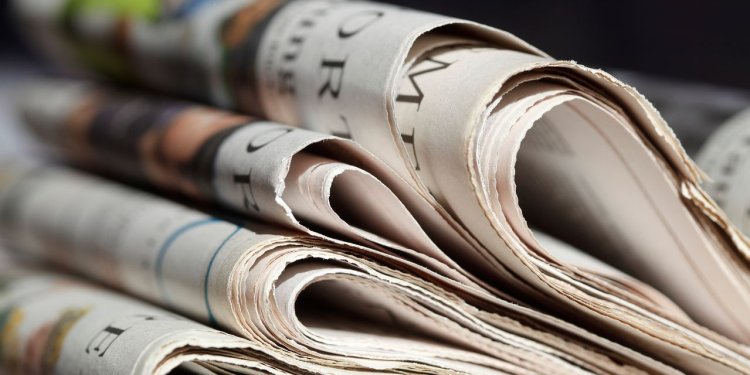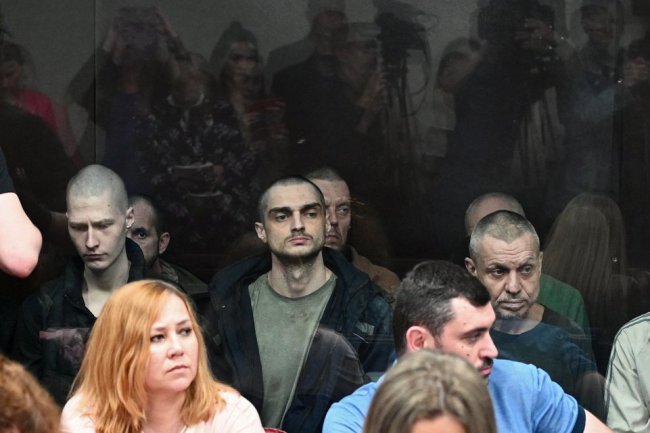The Sabbath and the Printed Page
On the Jewish day of rest, we need old-fashioned newspapers to stay informed. By Danielle Shapiro July 6, 2023 2:30 pm ET Photo: Getty Images/iStockphoto The news cycle doesn’t get a Sabbath, not the way my family does. At sundown every Friday we power off our phones, refrain from driving, and spend the day in prayer and company with loved ones. We shut out the busy world to focus on the Jewish day of rest because God rested too after his six days of creation. But the world doesn’t reciprocate when we block it out. Politicians may work 9 to 5, but the same isn’t true of war, weather, sports and disease. Since we can’t go online during the Sabbath, we cling to our print newspaper subscriptions like cherished family heirlooms. Accessible online news has plunged the print newspaper industry into a free-fall. America’s population


Photo: Getty Images/iStockphoto
The news cycle doesn’t get a Sabbath, not the way my family does. At sundown every Friday we power off our phones, refrain from driving, and spend the day in prayer and company with loved ones. We shut out the busy world to focus on the Jewish day of rest because God rested too after his six days of creation.
But the world doesn’t reciprocate when we block it out. Politicians may work 9 to 5, but the same isn’t true of war, weather, sports and disease. Since we can’t go online during the Sabbath, we cling to our print newspaper subscriptions like cherished family heirlooms.
Accessible online news has plunged the print newspaper industry into a free-fall. America’s population since 1990 has increased by almost a third, yet weekday circulation for the print versions of The Wall Street Journal and the New York Times has decreased by an estimated 60%. Local papers have fared far worse. While some polling shows Americans still favor print news over online formats, the price is too steep and the inconvenience too severe to curtail the downward trend.
I hope print newspapers survive. When major events occur on a Friday night, my family goes on a news-reading offensive on Saturday morning. Information might be limited as stories developed overnight. But that doesn’t stop us from dissecting different slivers as pieces of an unknown puzzle. The abortive Wagner Group mutiny, the 2017 National Basketball Association finals, Paris’s 2015 terror attacks, and the 2017 “Unite the Right” march in Charlottesville, Va., all got in, at least partially, just under the Friday-night wire. The opinion writers and pundits didn’t have time to editorialize in print before their evening deadlines, so we were forced to draw our own conclusions the next morning from the facts presented in the news pages.
In my family, everyone comes to the traditional Sabbath lunch with prepared remarks. My father adopts a historical perspective. My mother is concerned with free speech and religious liberty. My brothers discuss the weekly Torah portion or the Mets. My sisters offer what they’ve learned in business and medical school. I play devil’s advocate. At a table that leans conservative, my brother-in-law is the lone liberal defending his convictions. Our little editorial board makes sense of breaking news and contextualizes the events of the week.
The inability to rely on our phones challenges us to think deeply. We can’t google for historical examples to support our arguments. Instead, we present and defend our positions based on knowledge from the reading we’ve already done. With all the technology available today, we sometimes forget how extraordinary our brains are. The Sabbath reminds us.
Even if you don’t celebrate the Jewish Sabbath, consider observing an online news Sabbath and renewing your print subscription to the newspaper. It may work wonders on how you make sense of the world.
Ms. Shapiro is a Robert L. Bartley Fellow at the Journal.
Journal Editorial Report: The week's best and worst from Kim Strassel, Allysia Finley, Bill McGurn and Dan Henninger. Images: EPA/AP/PA/Reuters Composite: Mark Kelly The Wall Street Journal Interactive Edition
What's Your Reaction?

















